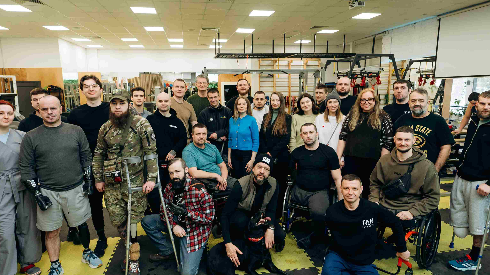
Ukrainian media groups gave their assessment of the draft law "On Media" 2693-d
In connection with numerous discussions taking place in the media community regarding the draft law "On Media" 2693-d, leading Ukrainian media groups consider it necessary to voice their position regarding this document.
In our opinion, updating the media legislation is undoubtedly an important and urgent step for the development of the industry. Currently, the work of the media is regulated by the current legislation, which is outdated (a significant part of Ukrainian laws is already more than 20 years old) and does not correspond to modern economic and technological development. There are no uniform standards and rules for all media market players, which, in turn, makes fair and healthy competition impossible for all market participants. The development of similar draft laws, which should bring our legislation closer to EU legislation, has been ongoing for the past 10 years and during the third convocation of the Verkhovna Rada.
Therefore, media groups welcome the very fact of the appearance of the new bill "On Media" as something that can be of great importance for the development of the Ukrainian media market. At the same time, the groups warn against the adoption of draft law 2693-d in the current version dated 07.02.2020, as they are concerned about certain essential provisions that are fixed in the current version and need to be revised. AND exactly:
1) The powers of the National Council have been expanded, in particular, regarding the interpretation of content, new sanctions have been introduced, including in the field of advertising and election legislation, powers have been introduced to receive documents and information that do not directly relate to possible violations by subjects in the media sphere, and also recorded the ability of the regulator to independently set the deadlines for providing such documents. In addition, the regulator has the authority to make decisions at its own discretion before establishing a co-regulatory body.
2) The provisions of the draft law allow the regulator to make a subjective assessment of the presence of content violations, which creates the possibility of unjustified or political pressure on the media, which should definitely not be the case in modern European-style legislation.
3) The grounds for canceling a license and canceling the registration of entities in the media sphere are not always proportional to the severity of violations.
4) Provisions regarding the establishment of a joint regulatory body and the order of representation in it are imperfectly prescribed. In particular, there is no clear procedure for participation in the joint regulatory body and the procedure for decision-making by this body, which creates risks of forming a joint regulatory body that will not reflect the real market position.
5) The proposed regulation of the procedure for the adoption of regulatory acts by the National Council does not contain any safeguards or restrictions, both in relation to the cases of adoption of such acts and in relation to their adoption procedure, which in turn creates risks of the regulator introducing additional (excessive), not of the statutory regulatory regulation of the activity of subjects in the media sphere, including in such matters as the content of the content and the order of its distribution.
6) Inequality of Ukrainian and foreign entities in the field of media, to the broadcasting or services of which there is access on the territory of Ukraine. The full effect of the law (including in terms of quotas and sanctions) will apply only to Ukrainian entities, while foreign entities in the field of media are only subject to very simplified regulation in terms of general content requirements. At the same time, having a powerful mechanism of restrictions and prosecution of Ukrainian linear media, the draft law does not include a mechanism of real influence on foreign entities, including Internet violators (including pirates).
7) Ukrainian entities will be in unequal conditions relative to foreign entities regarding the obligation to pay advertising to Ukrainian legal entities (for those who are not licensed or registered with the National Council, there is no such obligation), and there is also no ban on carrying out activities on the territory of Ukraine for providers of audiovisual services, including foreign ones, which are not registered in accordance with the requirements of the law.
8) In order to improve the situation with discrimination of Ukrainian subjects in the field of media compared to foreign ones, it was proposed not to worsen the language regulation for television and radio organizations and to leave the approach laid down in the law "On Ensuring the Functioning of the Ukrainian Language as the State", regarding the definition of requirements for the language of broadcast broadcasts and films exclusively according to the norms of the special law - ZU "On Television and Radio Broadcasting" and the law "On Media", respectively.
9) The proposed approach to determining the single grounds and the extent of responsibility of lily audiovisual media services and on-demand media services (Article 110 of the draft law) does not take into account the specifics and conditions of activity of entities that provide on-demand media services, and is also discriminatory in comparison to regulation of the responsibility of other subjects in the field of media.
At the same time, we cannot fail to note the positive aspects of the draft law. The provisions allow the regulator to more effectively protect the information space of Ukraine from the aggressor state. Finally, the difference in regulating the conditions of activity for all audiovisual media regardless of the technology of their distribution is decreasing. Also, the proposed approaches simplify the procedure of regulation and communication with the National Council - in particular, this is the introduction of electronic document management, creation of the subject's electronic cabinet, and simplification of reporting. Significantly simplified licensing procedures for broadcasters: only those who use the radio frequency resource should receive a license. Additional guarantees of the regulator's independence are introduced: the procedure for appointing members of the National Council has been improved and an exhaustive list of grounds for early termination of powers has been established. The creation of a co-regulatory body, provided that the formation mechanism is finalized, will allow the industry to be involved in the regulatory procedure and the creation of broadcasting codes: market participants will be able to define and develop important rules and criteria for clarifying the provisions of the law regarding content restrictions.
We believe that the draft law itself is necessary, important and progressive, but the text of the draft law in its current version is not ready to become a law, and the above-mentioned reservations, in particular, regarding the control and supervisory powers of the regulator, must be balanced in the further work on the text of the law.
Unfortunately, the comments and suggestions of representatives of media groups, which were provided during the preparation of the draft law, were mostly not taken into account by the Humanitarian and Information Policy Committee, therefore, we call on the deputies to dialogue and are ready to continue work with the aim of creating a balanced law on media, according to which all sub The media industry will have to live for the next 20 years. Together with MPs, media lawyers, representatives of various industries and the public sector, we have the best chance to finally get quality and updated legislation in this area.
Considering the above, we ask that the industry, together with people's deputies, the National Council and representatives of the public sector, be given the opportunity to finalize the text of the draft law "On Media" before its consideration by the Verkhovna Rada in the first reading.
Group 1+1 media
Media Group Ukraine

